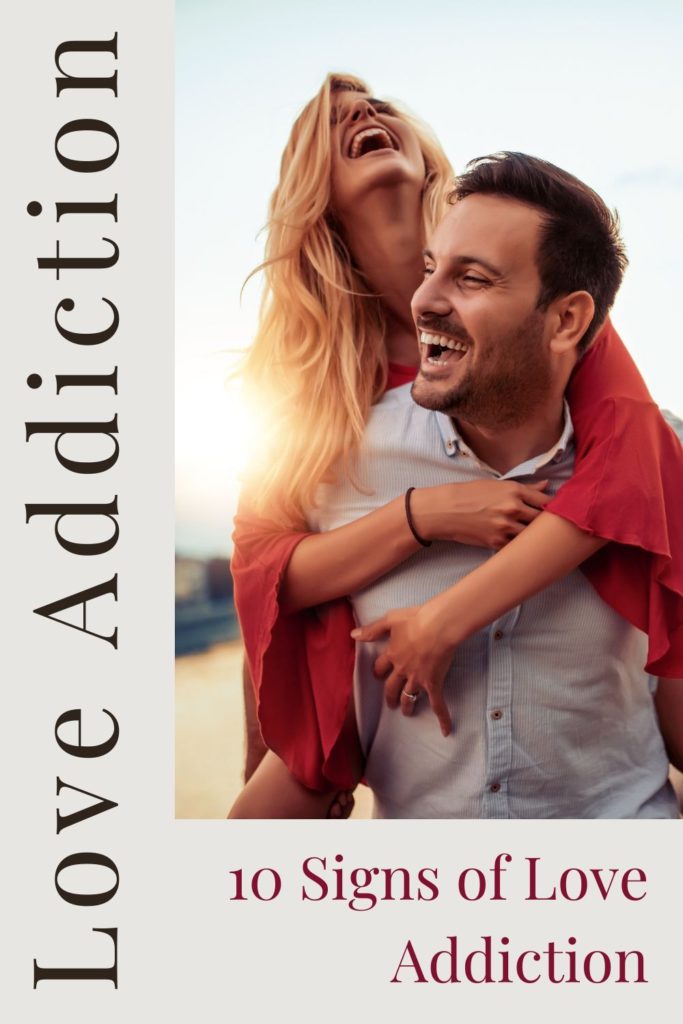By: Jennifer McDougall
Just as alcohol, cocaine, ecstasy, and heroin provide a temporary sense of escape for a person from their reality, anyone who is addicted to love seeks similar relief and can face severe physical and emotional withdrawal symptoms. Someone who is addicted to love develops obsessive behaviors and thoughts. They get high on the fantasy they create in their head about a particular person or connection. Likewise, they get addicted to the love, intimacy, and physical connection they feel when they are with a partner. That feeling is their dope, and they think they need it like the oxygen they breathe to survive.
In many cases, a person addicted to love will also find themselves in a co-dependent relationship, which is very common. They may turn to drugs and alcohol to temporarily numb the pain from the deep desire for the other person or the pain they feel from rejection. They also feel withdrawal symptoms when they are not with the one they love.
Love addiction is not as uncommon as most people think. Many people are not as aware of or understand the addiction, so they do not pay much attention to the signs. Just like drugs and alcohol, anyone who is addicted to love or in a co-dependent relationship should seek therapy and proper treatment to heal the underlying conditions before the cycle escalates and the dependency becomes more intense life-threatening.
Here are ten significant signs to tell if you are addicted to love:
- You know the relationship you’re in is terrible for you. You can physically feel how unhealthy being in a relationship is. Yet, you do not make an adequate effort to end it.
- Fear and anxiety consume you at the thought of ending the relationship.
- You make shallow excuses and create reasons why you should stay in the relationship.
- After you eventually end a relationship, you suffer painful withdrawal symptoms (and unhealthy behaviors) such as insomnia, vomiting, nausea, deep depression, panic attacks, dramatic weight changes, anger, rage, emptiness, complete loss of purpose, stalking, suicidal thoughts, begging for a chance to be connected, and dramatic episodes (sometimes very violent).
- You lower your standards when dating someone to avoid being alone.
- Every time you have the urge to contact the other person, you always say to yourself, “one more text,” or “one more phone call,” just as someone addicted to drugs or alcohol would say about using “just this one last time.”
- Your relationship or love interest consumes your day to day life, separating you from friends and family, your goals, and all of your right, authentic passions that bring you honest joy and happiness.
- You would give up anything and everything in the world to be with someone, even after they have broken up with you multiple times, cheated on you, lied to you, and purposely fed your insecurities.
- Obsessive behaviors such as excessive text messages, phone calls, stalking on and off-line, checking your cell phone every couple of minutes to see if they have contacted you, fantasizing about them and the relationship you could have, or picking out what kind of dish wear and curtains you would buy for your first home while you two are out shopping on your first.
- You feel as if you cannot live or be happy without this person. You want to be around them, with them, just near them all the time. When you are away from them, you feel depressed, sad, and lonely. When they aren’t reciprocating the connection you think exists, you feel a lack of drive and passion. It is as if you need this person in your life to be happy and survive.
What to do:
The most important thing to do is to find out the reason why. To overcome addiction, you must understand why you are doing what you are doing. Many people who have an addiction to love, like drug or alcohol addictions, have underlying issues causing them to chase the euphoric feeling that physical and emotional connections bring them, which is similar to cocaine addiction.
We suggest looking within yourself to find the underlying issue (abandonment, lack of self -esteem, or traumatic experiences) so that you can move on and live an addiction-free and fulfilling life. If you need professional help, do not hesitate to seek therapy and professional treatment before the situation becomes life-threatening.



